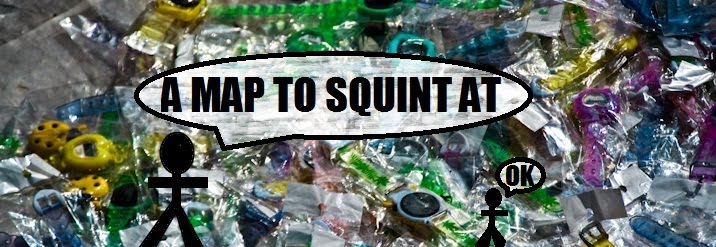March through Cuscu, Peru shortly after hearing of
Ollanto Humala's probable victory over far-right
Keiko Fujimori..
On Sunday June 4th Peruvians went to the polls in a run-off election in order to vote between far-right Keiki Fujimori and far-left Ollanto Humala. In the first round of presidential elections the two more moderate candidates split the vote and were eliminated from the next round. I won't go into much detail about dynamics between these 2 candidates or the particulars of their individual politics because this information can be found through a simple internet search, but here is a brief background on both of the candidates for president:
Keiko Fujimori's father, Alberto Fujimori, was Peruvian president from 1990 to 2000, at which time he had to flee office due to a corruption scandal (again, important stuff to know but too much to go into detail b/c this info is available in other places if you are interested. For more info on this search for: vladavideos). Her father is currently serving a 20 year jail sentence for corruption and human rights abuses. The majority of Keiko Fujimori's political advisors are repeats from her father's regime. Many Peruvians were afraid that her government would be prone to the same types of corruption and human rights abuses that her father's was. Click here ->http://www.nytimes.com/2011/05/28/world/americas/28peru.html?_r=1&scp=1&sq=keiko%20fujimori&st=cse for a NY Times spotlight on Keiko Fujimori.
President elect Ollanto Humala also has a controversial history in Peruvian politics. He is an ex-military commander who was also accused of human rights abuses during the struggle against the Shining Path terrorist group. In the past he has had strong ties with Venezuelan president Chavez, once making statements about his intention to push for similar reforms in Peru that Chavez has brought to Venezuela. Within the last few years, due to widespread public disagreement of this methodology, Humala has cut his ties with Chavez and has reached out to past Brazilian president Lula Da Silva (a more moderate liberal). Despite Humala's backtracking, many Peruvians do not buy into his sudden political changes. Many believe that he is just waiting to get into office in order to advocate reforms similar to those that Chavez has advocated for Venezuela. People are also very weary of dictatorial tendencies. and click here -> http://www.nytimes.com/2011/06/06/world/americas/06peru.html?scp=1&sq=humala&st=cse for information on Humala's background and his narrow victory over Fujimori.
Humala received the majority of votes from the rural areas of Peru while Fujimori swept most of Lima. As Cusco was one of Humala's strongholds he obviously received a vast majority of the vote here (between 75 percent and 80 percent). As seen in the above video, moments after the initial national vote was tallied on the night of the elections Humala supporters took to the streets in a march that wound in confusing spirals and circles through the streets of Cusco, ending at the gates of Humala's campaign headquarters. Despite the initial tally which at this time reported that he had won by nearly 5 percent, the next day the margin had lowered to 1 percent. I bring this fact up in order to highlight that at the moment that this march occured it was still not conclusive that Humala had won.
I shot this video at the start of the march before it built up too much steam. Regardless the passion of these Cusceñans is evident as Humala is their hometown hero.

No comments:
Post a Comment